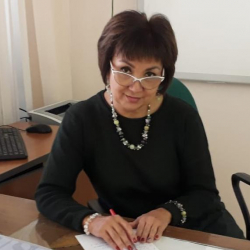План-конспект открытого урока в 11 а классе
по теме «Money and small business»
Организационный момент
1. Приветствие. Сообщение темы, постановка цели и задач урока
2. Вступительное слово учителя по теме «Деньги»
3. Заполнение «Паутинки» по теме «Деньги»
Проверка домашнего задания
Установление соответствий стран с их денежными единицами и их международными кодами
Передача информации по тексту «Валюта» в устной форме
Выполнение упражнения на дифференциацию лексических значений слова «валюта»
Введение новой темы «Малый бизнес»
1. Определение новой темы (прослушать текст и догадаться о типе бизнеса)
2. Работа с текстом:
a) чтение по группам
b) ответы на вопросы по тексту
с) работа по таблице
Работа с лексическими расхождениями
1. Заполнение пропущенных слов и перевод предложений
Развитие навыков аудирования
1. Прослушивание текстов, выполнение задания
2. Проверка ответов
Рефлексия
1. Пословицы о деньгах
2. Тест на закрепление изучаемого материала
VII. Информация о домашнем задании, выставление оценок
Дата: 17.04.2019.
Учебный предмет: английский язык
Учитель: Cатенова Жамиля Абдыкалиевна
Класс: 11а
Автор и название УМК: Сборник Специальных модулей по финансовой грамотности для УМК по английскому языку 11 класса / М. В. Вербицкая.
Тема урока: Деньги. Малый бизнес
Тип урока: традиционный
Оснащение урока: распечатки из сборника, мультимедийная презентация в программе Power Point, компьютер, аудиозапись.
Место и роль темы в курсе предмета
Тема «Малый бизнес» входит в рабочую программу английского языка как элемент основ финансовой грамотности. В ходе урока английского языка при обсуждении финансовой тематики позволит обучающимся расширить свои представления об отношении к финансовой стороне жизни. У обучающихся формируется понимание важности ответственного и грамотного финансового поведения, представление о том, как устроены различные предприятия малого бизнеса, знания и представления о валюте.
Применяемые технологии:
- Технология индивидуализации обучения (помогает реализовать личностно-ориентированный подход, учитывая индивидуальные особенности и потребности обучающихся);
- Технология коммуникативного обучения (коммуникация: общение, переработка информации);
- Технология разноуровневого (дифференцированного) обучения (предполагает осуществление познавательной деятельности обучающихся с учётом их индивидуальных способностей, возможностей и интересов, поощряя их реализовывать свой творческий потенциал;
- Технология развития критического мышления.
Цель урока
Повышение уровня финансовой грамотности обучающихся.
Задачи:
Речевая компетенция;
актуализация лексических знаний в рамках изученной темы;
развитие навыков монологической речи по теме;
развитие способности к логическому изложению содержания высказывания;
развитие умения делать выводы из услышанного
Языковая компетенция:
Социокультурная компетенция:
расширение знаний обучающихся в финансовой сфере;
воспитание толерантного отношения к мнению других обучающихся;
развитие умения работать в команде
Учебно-познавательная компетенция:
развитие интеллектуальных способностей обучающихся,
развитие способности к распределению внимания, к догадке, к сравнению и сопоставлению
Тип урока: комбинированный
Форма организации деятельности обучающихся: фронтальная, групповая.
Методы обучения: объяснительно-иллюстративный, репродуктивный, частично- поисковый.
Технологии обучения: проблемное обучение, информационно-
коммуникативная технология, личностно-ориентированное обучение
Good morning pupils. Our lesson today is devoted to the basic meanings of financial literacy. Our lesson today includes the next stages.
1. We’ll do some tasks with something that generally accepted as a medium of exchange, a measure of value, or a means of payment. I don’t tell you this word you will guess it for yourselves.
2. We’ll check your homework which is connected with the word of currency.
3. Then we’ll speak about one of the types of business.
4. The next stage of the lesson is listening.
5. Then you will match the English equivalents to the Russian proverbs.
6. At the end of the lesson you’ll do the test in order to control your learning of everything done during the lesson.
Now can you tell me what a key word will be at the beginning of our lesson? Try to guess it from the proverb, “ A root of all evil” But some people think that it’s a root of all happiness. What’s this?
Money is the means of payment or medium of exchange. Money refers to coins or paper notes with their value printed on them. Money is one of the integral parts of our life. We can’t live without money. What can we do with money? On the blackboard you can see a web with the word money in the centre. Fill in this web with the words which reflect the actions we can do with money.
Think a little and remember these words. I turn on the song which I think help you to do this task.
Well done pupils. Now read and say the meaning of the words you have written. What we can do with money.
People buy and sell goods in exchange for money. When we receive money regularly we think of it as income , pension, benefit, salary, grant or scholarship and others. The money in use in the country is currency. Which foreign currencies do you know? Look at the screen and match the countries, their currencies and the international codes from the box. That’s all right. I see you know the currency of our countries as well as foreign currency.
We’ll continue speaking about currency. Your homework was to read the fact file about currency. You had to paint an image of your statement. Listen to each other attentively and then answer my questions.
1. Only 8% of the world’s currency is physical money, the rest only exists on computers.
How do you understand this statement?
2. When Australia stopped using the pound as its currency, some of the suggested names for the new currency were austral, the oz, the boomer, the kanga, the emu, the digger and the Quid before the government ultimately settled on the Australian dollar.
Why didn’t people of Australia choose one of these options?
3. Due to the high value of tea in many parts of Asia, tea bricks were used as a form of currency throughout China Tibet, Mongolia, and Central Asia.
Why aren’t tea bricks used nowadays in these countries?
4. Stores on US military bases around the world don’t accept pennies as currency.
What do you think about this refusing? For what reason don’t they accept coin as currency?
because they’re “too heavy and are not cost-effective to ship”.
5. Adobe Photoshop detects if you are trying to edit an image of currency, and stops you from opening/printing the file.
Why does this programme prevent printing the file with currency?
6. The pre-Columbian Aztec Empire used cocoa beans as the currency for small everyday transactions. A small rabbit was worth 30 cocoa beans, a turkey egg cost 3 cocoa beans, and someone’s daughter to be used as a human sacrifice cost 500 cocoa beans.
Why exactly the beans were the means of currency?
Well done pupils. I liked the way you’ve presented the fact files. The following exercise was also your homework. You had to read three definitions and find out which sentences have the meaning of financial sphere that is the system or type of money that a country uses and something that is used as money or metaphorical meaning that is the quality or state of being used or accepted by many people. Well, let’s start. What is the meaning of this sentence? Which meaning is suitable to this statement?
1. Меха когда-то продавались как валюта.
2. Эта история постепенно набирает силу
3. Им заплатили американской валютой.
4. Спор широко распространился.
5. В большинстве европейских стран существует единая валюта называется евро
6. Идея была очень распространена в европейской литературе.
Good job pupils. I see you’ve succeeded in doing your homework quite perfectly.
The next stage of our lesson is speaking about one type of business. Look at the screen and try to match the names of some business with their translation into Russian. So the theme of our lesson today is Small Business.
This type of business with just a few employees are also important. Many governments hope that small businesses of today will become the multinationals of tomorrow, but many owners of small companies choose to work that way because they find it more congenial and do not want to expand. And then of course there are the sole traders, one-man or one-woman businesses.
In the professional world, these freelancers are often people who have left (or been forced to leave) large organisations and who have set up on their own.
You have a shirt of paper with the text. Read a fragment from a new letter from Andrew’s cousin Mary and learn more about her new job. To do this task I’d like to divide you into two groups. The first group, your task is to read the text and answer the question: What kind of functions does she perform? The second group, the question for you is: In a bigger company, what departments perform these functions? Now pupils let’s read the text. On this table-card you can see the duties of Mary in her small business. I offer you to fill in the table with Mary’s duties in detail. You can find them in the text. The first group the first and the second columns are for you and the second group the third and the fourth columns are yours. Well, pupils are you ready with your answers. It is known that setting up and then running a business has its advantages and disadvantages. Look at the screen. The first group find out the word combinations which means advantages. And the second group choose the words suitable to the meaning of disadvantages. Remarkable job. I see you can work with new expressions brilliantly. I can say that you’ve understood the texts quite well and you are super groups. Now you may return to your places. Pupils, what kind of letter is this. Is it an official letter or some kind of other letter? It’s a personal letter. In this letter you’ve faced with the word personnel. Do you know the difference between these words? Which of these words means ‘people employed in a company’? Which means ‘belonging to a particular person’? Now let’s do the exercise 3. Look at the screen and put the proper words into the gaps.
The next stage of our lesson is listening. At the beginning of the lesson we’ve got acquaintance with the names of some types of business. They are: Public limited company, Sole trader, Private limited company, Partnership. Look at the pictures (A–D) and listen to four people speaking about their business
experiences. What types of organizations are they talking about? Well done. You are making my day.
There are a lot of proverbs about money. Read the English proverbs about money and match their Russian equivalents. Proverbs are known as the reflection of folk mind and folk wisdom. They keep deep meaning and in laconic way help to express our thoughts. At the end of the lesson I’d like you to do the test to consolidate everything you’ve learnt on the lesson today.
Our lesson is coming to its end and in conclusion I’d like to tell that you have shown your best abilities in reading, listening, speaking. I’m satisfied with your working during the lesson. All of you tried hard and some of you were on the top today. ________ I put you the mark “5”. ______________ your mark is “4” And I am sure nothing can stop you in learning English.
Commonly confused words
personal– personnel
Which of these words means ‘people employed in a company’?
Which means ‘belonging to a particular person’?
1. Managing sales assistants
Менеджеры по продажам
2. Handling money matters
Дела по обработке денег
3. Controlling stock
Контроль запаса
1. Hiring/firing the shop assistants and planning their work,
training new personnel
Наем / увольнение продавцов и планирование их работы, обучение нового персонала
2. Paying the rent to the mall and other invoices,recording the shop’s sales, depositing money in the bank
Оплата аренды торгового центра и других счетов, учет продаж магазина, внесение денег в банк
3. Ordering goods and arranging them, putting ads into magazines
Заказ товаров и их оформление, размещение рекламы в журналах
Currency
1. Меха когда-то продавались как валюта.
2. Эта история постепенно набирает силу
3. Им заплатили американской валютой.
4. Спор широко распространился.
5. В большинстве европейских стран существует единая валюта называется евро
6. Идея была очень распространена в европейской литературе.
Advantages of small business:
Independence. Financial rewards. Learning opportunities. Creative freedom and Personal satisfaction.
Disadvantages:
Risk. Stress. Time commitment. Competition Competition
So, pupils, you have shown your best abilities in reading, listening, speaking. I’m satisfied with your working during the lesson. And in conclusion I’d like you to tell some words. I’d like to tell you pupils, all of you tried hard but some of you were on the top today. ________ I put you the mark “5”. ______________ your mark is “4” And I am sure nothing can stop you in learning English.
качество или состояние использования или принятия многими людьми
Lesson 3 “Money. A type of business ”
Homework
FACT FILES
1. Only 8% of the world’s currency is physical money, the rest only exists on computers.
2. When Australia stopped using the pound as its currency, some of the suggested names for the new currency were austral, the oz, the boomer, the kanga, the emu, the digger and the Quid before the government ultimately settled on the Australian dollar.
3. Due to the high value of tea in many parts of Asia, tea bricks were used as a form of currency throughout China Tibet, Mongolia, and Central Asia.
4. Stores on US military bases around the world don’t accept pennies as currency.
5. Adobe Photoshop detects if you are trying to edit an image of currency, and stops you from opening/printing the file.
6. The pre-Columbian Aztec Empire used cocoa beans as the currency for small everyday transactions. A small rabbit was worth 30 cocoa beans, a turkey egg cost 3 cocoa beans, and someone’s daughter to be used as a human sacrifice cost 500 cocoa beans.
Exercise 1
1. Currency
a the system or type of money that a country uses
b something that is used as money
c the quality or state of being used or accepted by many people
1 Furs were once traded as currency.
2 This story is gradually gaining currency.
3 They were paid in US currency.
4 The argument has received wide currency.
5 In most European countries there is a single currency called euro.
6 The idea was common currency in European literature.
7 In Japan the local currency is the yen.
8 Many slang words have short currency.
Exercise 2
Read a fragment from a new letter from Andrew’s cousin Mary and learn more about
her new job. What kind of functions does she perform? In a bigger company, what departments perform these functions?
Dear Andrew,
Thank you for writing me so often! I’m very busy in my new job, but I feel a bit lonely with no relatives or friends here. You’ve asked me whether I like my job and what I’m actually doing. I manage a flower shop in a large mall. I’m fully responsible for its functioning, which means that I manage the shop assistants, handle the money matters and control the shop stock. I have to hire (and sometimes to fire) the shop assistants, to plan their work hours and to train new personnel.
My duties also include paying rent to the mall and paying other invoices. Every day I have to record the shop’s sales and deposit the money in the bank. The best part of my job is controlling the stocks.
I order cut flowers and potted plants and some other things like toys and souvenirs that we sell. I
like arranging it all so that a customer buys not only the flowers but something else as well. Putting ads in magazines is also part of my job.
3. Complete the sentences with either personal or personnel.
1 My sister is a ___ assistant to the Managing Director.
2 Do you call this a Human Resources Department or a ___ Division?
3 Do you agree that ___ and professional life should be kept apart?
4 I’d like to speak to you about a ___ matter.
5 Do we have enough trained ___ to offer new services?
6 She is studying ___ management.
7 The book is based on the author’s ___ experience.
8 We’ve advertised for extra security ___ .
9 She is the head of ___ for an international corporation.
10 There is a letter for you marked ‘___’.
TEST
1. What is benefit?
a. Money which you leave to accommodation owner in case you break something there b. An advantage or profit gained from something.
c. A record of previous loans/credits of a certain person and their repayment.
2. What is salary?
a. A monthly payment of your loan/credit.
b. lt’s a business transaction that doesn’t involve friends.
c. A fixed regular payment, typically paid on a monthly basis but often expressed as an annual sum, made by an employer to an employee, especially a professional or white-collar worker.
3. What is the meaning of the word “personnel”?
a. People employed in a company’
b. People with no credit history.
c. Belonging to a particular person’
4. What is the meaning of the word “personal”?
a. A senior manager has much more responsibility than an ordinary person.
b. Belonging to a particular person’?
c. A person who offers money for credit.
5. People invented money for…
a. Facilitate exchange
b. Measure the value of different goods
c. Have the ability to make savings
d. All answers are correct
6. Which of the proposed definitions is best for the concept "benefit"?
a. Part of salary
b. Cash reward
c. Promotion for a job well done
d. prize
7. A person who, at his own expense and at his own risk and risk, opens own business is called…
a. Pioneer
b. An entrepreneur
c. Follower
d. An adventurer
8. Family income includes…
a. Travel fee b. Taxes c. Pension d. Rent
9. In which country did the first paper money appear?
a. Egypt b. China c. New Zealand
10. Solve the problem.
Cat Matroskin gathered peaches in the garden, bought for 600 rubles sugar, cans, lids and cooked compote from peaches. It turned out 15 jars. Matroskin decided to sell the compote on the market. At what price should he sell compote to make a profit? In a nearby shop a jar of peach compote costs 70 rubles.
Homework
Andrew’s cousin Mary has decided to start her own business. She is going to open a café.
Read the text and answer the questions.
1. What would she need the working capital and the long-term capital for?
2. Did you miss any aspects described in the text?
3. Work out the meaning of the highlighted terms from the context.
Money has been called the ‘lifeblood of any business’. All firms – whether they are based in the public sector or in the private sector – require capital to start business and to grow. Firms will have to meet short-term debts, which come from trading activities such as buying goods on credit. This short term
finance is a firm’s working capital. Any business which has a lack of working capital will face difficulties in surviving. It will not be able to take advantage of cost-saving discounts, since it does not have the cash available, and its creditors will be demanding payment of the money they are owed by the firm. In this last instance, they could take legal action to recover the amount owed by the firm, forcing it to close down and sell off its assets to get the required money. Firms also need long-term capital, in order to expand. There are many sources of longterm capital: personal savings of sole traders and limited company shares are two well-known examples of such sources. Without
sufficient capital, firms will find it impossible to grow.
MONEY
«В чем заключается суть понятия валюта»?
1.Грошови единицы иностранных государств
2. Денежная единица страны
3. Денежные единицы как собственные, так и иностранные, а также кредитные и платежные документы, стоимость которых выражена в иностранной валюте, которые применяются в международных расчетах +
4. Векселя, чеки, кредитные карточки
В какой стране появились самые первые бумажные деньги?
China Egypt New Zealand

Люди изобрели деньги для того, чтобы
1) Облегчить обмен
2) Измерить ценность разных товаров
3) Иметь возможность делать накопления
4) Все ответы верны
4. Какое из предлагаемых определений является лучшим для понятия
«премия»?
1) Часть заработной платы
2)Денежное вознаграждение
3) Поощрение за отлично выполненную работу
4) Наград
Человек, который за свой счёт и на свой страх и риск открывает
собственное дело, называется
1) Первооткрывателем
2) Предпринимателем
3) Последователем
4) Авантюристом
4. К доходам семьи относятся
1) Плата за поездки на транспорте
2) Налоги
3) Пенсия
4) Плата за квартиру
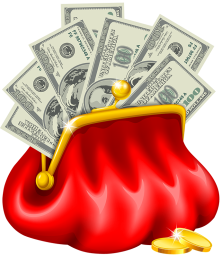
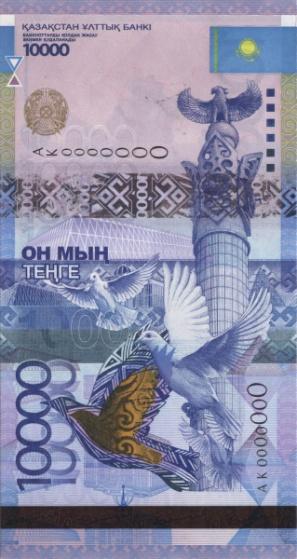
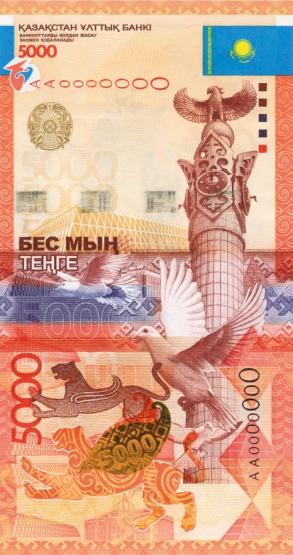
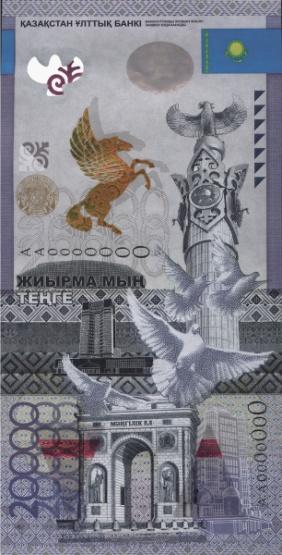
Номинация « Бизнес»
Кот Матроскин собрал в саду персики, купил на 600 руб. сахар, банки, крышки и наварил компот изперсиков. Получилось 15 банок. Матроскин решил продать компот на рынке. По какой цене он долженпродавать компот, чтобы получить прибыль. В соседнем магазине банка персикового компота стоит 70 руб.
Номинация «Магазин»
Номинация «Семейный бюджет»
Чебурашка и Гена решили побаловать себя сырничками. Чебурашка купил сырники-полуфабрикаты вмагазине «Кулинария» (5 штук в коробке за 80 руб.). А Гена купил 0,5 кг. творога за 70 руб. и 3 яичка за 20руб. и испёк сырнички сам, их получилось 12 штук. Кто из них сделал более выгодную покупку и сэкономилсемейный бюджет?




